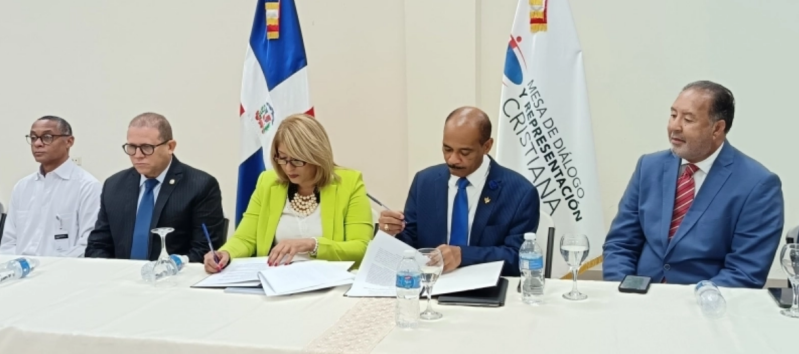
In a spirit of commitment and hope, representatives from medical, social, and religious organizations have unveiled the Dominican Republic’s first National Palliative Care Plan — a landmark initiative aimed at ensuring dignified, compassionate, and accessible care for people facing advanced or terminal illnesses.
The event, held at the Dominican Churches’ Social Service Hall, gathered health authorities, legislators, academics, Christian leaders, and patient advocates. Organized by the Dominican Association for the Study and Treatment of Pain and Palliative Care (ADETDYCP) and the Dialogue and Christian Representation Roundtable, it marked what participants described as a defining step toward integrating palliative care into the nation’s health system, according to reports from El Nuevo Diario and Evidencias Digital.
During the ceremony, the organizers also signed a framework agreement to promote holistic health, professional training, multidisciplinary care, and advocacy in public policy.
Dr. Bethania Martínez, president of ADETDYCP, said the plan represents a concrete step forward for the country.
“We are fulfilling a promise from civil society — to deliver the plan,” Martínez said. “Now it’s time for our government institutions to fulfill theirs, so that universal access to palliative care becomes a reality in the Dominican Republic.”
Bishop Reynaldo Franco Aquino, president of the Dialogue and Christian Representation Roundtable, emphasized that the effort “is not only about health, but about human dignity.”
“Caring for those who suffer, accompanying those who walk through pain, is also a form of social justice,” he said.
The National Plan outlines a comprehensive model of care addressing the medical, social, ethical, and spiritual dimensions of patients. Organizers said its goal is to “guarantee equitable, timely, and dignified access to palliative care services across the country.”
Its key priorities include training specialized personnel, improving access to essential pain management medications, and involving communities and churches in raising awareness about palliative care.
“The agreement seeks to build bridges between science, faith, and civil society so that palliative care becomes an integral part of the Dominican health system,” Evidencias Digital reported.
Although some isolated initiatives exist, the Dominican Republic previously lacked a formal national framework for palliative care. According to the Atlas of Palliative Care in Latin America, the country remains among those with limited development in this field.
The new plan marks a significant milestone, but experts warn that its success will depend on political will, budget allocations, and coordination with the public health system.
“The convening organizations are reinforcing their call for the Dominican government to take responsibility for implementing public policies that guarantee the right to palliative care,” summarized the Dominican Medical Journal.
The National Plan and accompanying inter-institutional agreement lay the groundwork for a public policy rooted in compassion, dignity, and accompaniment. Yet even its proponents acknowledge that this is only the beginning.
“The document has been delivered,” Dr. Martínez said. “Now it’s up to the State to make it a reality.”
Originally published by Diario Cristiano, Christian Daily International's Spanish edition.





